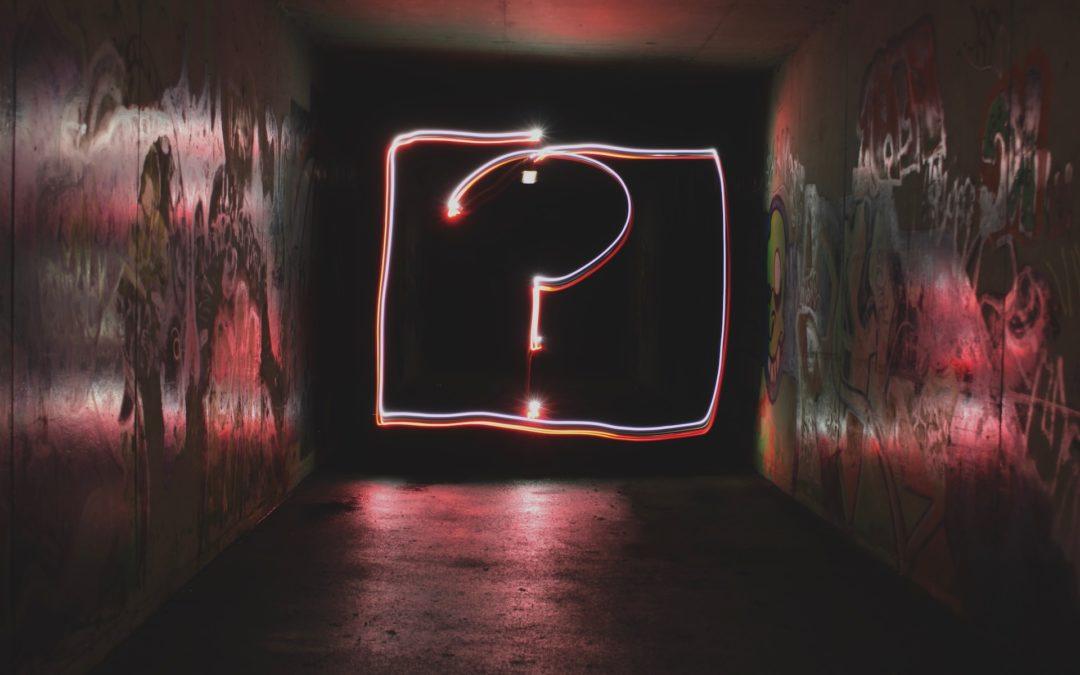Have you ever found yourself in a situation where you were faced with a tough decision, one that seemed to test your values and morals to their very core? Moral dilemmas are complex situations that present individuals with a choice between two or more options, each of which has both positive and negative consequences. These dilemmas can arise in a variety of contexts, from personal relationships to professional settings, and can be incredibly challenging to navigate. In this article, we will explore 30 of the best moral dilemma examples, delving into the intricacies of each situation and examining the moral reasoning behind the decisions that individuals make. Whether you are a student of ethics, a curious reader, or someone who simply wants to deepen your understanding of the human experience, this article is sure to provide you with plenty of food for thought and insights into the complexities of moral decision-making.
List of Interesting Moral Dilemma Examples
1. The Trolley Problem
A trolley is headed towards five people who are tied to the tracks. You have the option of pulling a lever to switch the trolley to another track where only one person is tied up. Do you pull the lever or do nothing and let the trolley continue on its path, killing five people?
2. The Lifeboat Dilemma
You and a group of people are stranded in a lifeboat in the middle of the ocean. There is only enough food and water for half of the people to survive until rescue arrives. Do you sacrifice the weaker members of the group to ensure the survival of the stronger ones, or do you try to distribute the resources evenly and risk everyone dying?
3. The End of Life Care Dilemma
When a person is nearing the end of their life, how do we balance the desire to prolong life with the desire to provide comfort and quality of life? This raises questions about the value of life and the role of medical professionals in end-of-life care.
4. The Ticking Time Bomb
You have captured a terrorist who has planted a bomb that will detonate in a crowded area, killing many innocent people. The terrorist will not divulge the location of the bomb, but you have a captive who knows the information. Do you use torture to extract the information and save lives, or do you refrain from torture and risk the lives of the innocent people?
5. The Lying Doctor
A doctor knows that a patient has a serious illness, but telling the patient will cause them immense emotional distress and may cause them to give up hope. The doctor can lie to the patient and tell them that they are healthy, but doing so will also prevent the patient from seeking treatment that could save their life. Does the doctor tell the truth or lie to the patient?
6. The Insider Trading Dilemma
An employee of a company discovers that the company will be making a major announcement that will cause the stock price to skyrocket. The employee has the opportunity to buy the stock before the announcement is made, but doing so would be considered insider trading and could result in legal consequences. Does the employee buy the stock or refrain from doing so?
7. The Forgery Dilemma
A person is asked by a dying relative to forge their will in their favor. Doing so would result in them receiving a large inheritance, but it would also be illegal and could result in the person facing criminal charges. Does the person forge the will or refuse to do so?
8. The Euthanasia Dilemma
A person is suffering from a terminal illness and is in constant pain. They ask a doctor to end their life to relieve their suffering. Euthanasia is illegal in their country, but the doctor has the means to do so. Does the doctor perform euthanasia or refuse to do so?
9. The Cloning Dilemma
A scientist discovers the means to clone humans. The clones would be identical to the original person and would have the same memories and personality. The scientist must decide whether to continue with the research, knowing that it raises ethical and moral questions about the value of human life and individuality.
10. The Self-Driving Car Dilemma
Self-driving cars are becoming more common, but they are not infallible. If a self-driving car has to choose between hitting a pedestrian or crashing the car and killing the occupants, what should it do?
11. The Organ Donation Dilemma
A person has died and their organs are needed to save the lives of several people. However, the person did not give consent for their organs to be donated, and their family is against the idea. Should the organs be taken anyway, or should the family’s wishes be respected?
12. The Animal Testing Dilemma
Scientists need to test a new drug that could save countless lives, but doing so will require animal testing. Is it ethical to harm animals for the benefit of humans, or is it morally wrong to use animals in this way?
13. The Immigration Dilemma
Governments must balance the need to protect their citizens from security threats and maintain control over their borders with the moral obligation to provide refuge to those fleeing persecution and conflict. Countries must decide whether to prioritize national security or humanitarian concerns when making decisions about immigration policy.
14. The Privacy vs. Security Dilemma
Governments and technology companies must balance the need for security and surveillance to prevent terrorism and other threats with the right to privacy and civil liberties. Citizens must decide whether they are willing to sacrifice some privacy for increased security, or whether they prefer to maintain their privacy at all costs.
15. The Social Media Dilemma
Social media platforms are powerful tools for communication and sharing information, but they can also be used to spread misinformation, hate speech, and other harmful content. Platforms must decide whether to prioritize free speech or to moderate content more aggressively to protect users from harm.
16. The Capital Punishment Dilemma
Governments must decide whether to use capital punishment as a means of deterring crime and punishing offenders, or whether it is morally wrong to take a human life, even in cases of the most heinous crimes.
17. The AI Ethics Dilemma
As artificial intelligence becomes more powerful and autonomous, we must decide how to ensure that it is used for the benefit of humanity and not for harm. We must grapple with questions of responsibility, accountability, and moral agency when it comes to AI.
18. The Human Enhancement Dilemma
As technology advances, we are increasingly able to enhance our physical and cognitive abilities through drugs, implants, and other interventions. But what are the ethical implications of enhancing ourselves beyond what is considered “normal” or natural?
19. The Genetic Engineering Dilemma
With the ability to manipulate genes, we have the potential to cure genetic diseases, create new life forms, and even design “perfect” babies. But what are the ethical implications of manipulating the genetic code of living beings?
20. The Autonomous Weapons Dilemma
With the development of autonomous weapons, we must decide whether it is ethical to delegate the responsibility of life and death to machines. This raises questions about accountability, the value of human life, and the potential consequences of handing over control to artificial intelligence.
21. The Cultural Relativism Dilemma
Different cultures have different moral values and beliefs. Is it ethical to judge other cultures by our own standards, or should we respect their cultural practices, even if they differ from our own?
22. The Environmental Ethics Dilemma
As we continue to exploit the natural world for our own benefit, we must consider the ethical implications of our actions. How do we balance our need for resources with our responsibility to protect the planet and its biodiversity?
23. The Business and Human Rights Dilemma
Many businesses operate in countries where human rights are not respected, and they may be complicit in human rights abuses. How can we hold businesses accountable for their actions and ensure that they operate in an ethical and responsible manner?
24. The Medical Research Dilemma
Medical research often involves experimentation on human subjects, which raises ethical questions about informed consent, risk, and the potential benefits of the research.
25. The Memory Erasure Dilemma
Imagine a technology that can erase specific memories from your mind. A person is offered the chance to erase a traumatic memory that causes them severe distress but also shapes their identity and resilience. Should they erase the memory to relieve pain or keep it as a part of who they are?
26. The Resource Allocation Dilemma
When resources are limited, how do we decide who gets access to them? This raises ethical questions about fairness, distributive justice, and the role of government in ensuring that resources are allocated in a just and equitable manner.
27. The Mind Uploading Dilemma
Scientists have developed a way to upload a person’s consciousness to a computer, offering a form of digital immortality. However, it’s uncertain whether the digital consciousness truly represents the person or just a simulation. Should people pursue digital immortality, and what does it mean for concepts of life and death?
28. The Informed Consent Dilemma
In medical and research settings, informed consent is essential to ensure that individuals are aware of the risks and benefits of a procedure or intervention. But what happens when individuals are unable to give informed consent, either because of age, mental illness, or other factors? This raises questions about autonomy, the role of surrogate decision-makers, and the ethics of conducting research on vulnerable populations.
29. The Just War Dilemma
When is war justified, and what ethical principles should guide our decision to engage in armed conflict? This raises questions about the morality of violence, the role of military action in achieving political goals, and the consequences of war for civilians and combatants alike.
30. The Responsibility to Protect Dilemma
When a government is unable or unwilling to protect its citizens from harm, what is the responsibility of the international community to intervene? This raises questions about the morality of intervention, the role of sovereignty in international relations, and the potential consequences of foreign intervention in the affairs of other countries.
Definition of Moral Dilemma
A moral dilemma is a situation in which an individual is forced to choose between two or more options, each of which carries moral weight or consequences. It is a difficult decision where the choice between right and wrong is not always clear, and the outcome of the decision can have far-reaching consequences.
Moral dilemmas arise in a variety of situations, from personal dilemmas such as deciding whether to lie to protect someone, to professional dilemmas such as deciding whether to blow the whistle on unethical behavior in the workplace. These dilemmas can be challenging to navigate, as they often involve conflicting values, principles, and beliefs.
One reason why understanding moral dilemmas is important is that they are an inevitable part of life. At some point, everyone will face a moral dilemma that requires them to make a difficult decision. Being able to navigate these situations effectively requires an understanding of moral principles and ethical frameworks.
Another reason why understanding moral dilemmas is important is that they can have significant consequences. The decisions made in a moral dilemma can impact individuals, communities, and even society as a whole. For example, the decision to lie to protect someone may seem harmless, but it can have serious consequences if it leads to an innocent person being convicted of a crime. Similarly, the decision to blow the whistle on unethical behavior in the workplace can lead to the downfall of an entire organization.
Moreover, understanding moral dilemmas can help individuals develop their moral reasoning skills. By grappling with difficult ethical questions, individuals can learn to think critically about moral principles and how they apply in real-world situations. This can help them make more informed and thoughtful decisions in the future.
One way to understand moral dilemmas is to consider different ethical frameworks. There are a variety of ethical frameworks that individuals can use to guide their decision-making in moral dilemmas. Some of the most common ethical frameworks include utilitarianism, deontology, and virtue ethics.
Utilitarianism is an ethical framework that emphasizes the importance of maximizing overall happiness or pleasure. In a moral dilemma, a utilitarian would choose the option that results in the greatest overall happiness, even if it means sacrificing the happiness of a few individuals.
Deontology is an ethical framework that emphasizes the importance of following moral rules or principles. In a moral dilemma, a deontologist would choose the option that is consistent with a moral rule or principle, even if it means sacrificing overall happiness.
Virtue ethics is an ethical framework that emphasizes the importance of developing virtuous character traits such as honesty, courage, and compassion. In a moral dilemma, a virtuous person would choose the option that is consistent with their virtuous character traits.
Understanding these ethical frameworks can help individuals think more deeply about their moral beliefs and principles and how they apply in real-world situations. It can also help them develop a more nuanced understanding of moral dilemmas and the various factors that can impact decision-making in these situations.
Kohlberg Dilemmas
Kohlberg’s dilemmas refer to moral dilemmas designed by Lawrence Kohlberg, a psychologist known for his theory of moral development. He used these dilemmas to study the development of moral reasoning in individuals, particularly in children.
One of the most famous dilemmas Kohlberg presented is the “Heinz dilemma.” In this scenario, a man named Heinz faces a moral decision: his wife is dying, and he can’t afford the medication she needs. The pharmacist is charging an exorbitant price, so Heinz considers stealing the medicine. The dilemma revolves around whether Heinz should steal the medicine or not, and why.
Kohlberg used such scenarios to assess an individual’s level of moral reasoning and categorized moral development into stages. These stages span from pre-conventional morality (focused on self-interest and obedience), through conventional morality (concern for societal norms and approval), to post-conventional morality (concern for universal ethical principles and individual rights).
By analyzing responses to these dilemmas, Kohlberg aimed to understand how individuals justify their moral decisions and how their reasoning about right and wrong develops over time.
Kohlberg’s theory of moral development consists of six stages grouped into three main levels: pre-conventional, conventional, and post-conventional morality.
- Pre-conventional Morality:
- Stage 1 – Obedience and Punishment Orientation: Focus on avoiding punishment. Actions are considered bad if they are punished.
- Stage 2 – Self-Interest Orientation: Decision-making based on self-interest and personal gain. What is right is what serves one’s own needs.
- Conventional Morality:
- Stage 3 – Interpersonal Relationships: Valuing conformity and approval from others. Actions are judged based on societal norms and maintaining social order.
- Stage 4 – Maintaining Social Order: Upholding rules, laws, and societal norms. Decision-making is based on maintaining the functioning of society.
- Post-conventional Morality:
- Stage 5 – Social Contract and Individual Rights: Recognition of individual rights and democratic principles. Understanding that laws are social contracts and can be changed for the greater good.
- Stage 6 – Universal Ethical Principles: Highest stage where individuals have their own ethical principles based on universal human rights and justice. They act according to these principles, even if they conflict with societal norms or laws.
Kohlberg believed that individuals progress through these stages sequentially, though not everyone reaches the highest levels of moral reasoning. He also emphasized that moral development is influenced by cognitive development, experiences, and social interactions.
His dilemmas were tools to prompt individuals to explain their moral reasoning, allowing researchers to evaluate their moral stage and how they justify their moral choices based on the provided scenarios.
Moral Theories vs. Moral Dilemma
Ethical theories are frameworks that help individuals determine what is morally right or wrong. They provide guidance on how to make decisions in situations where there are conflicting values or interests. There are three major ethical theories: consequentialism, deontology, and virtue ethics. Each theory has its own set of principles that guide moral decision-making.
Consequentialism is an ethical theory that judges the morality of an action based on its consequences. The ultimate goal of consequentialism is to maximize the overall good or happiness in the world. This theory is often associated with utilitarianism, which suggests that actions should be taken to bring about the greatest amount of pleasure or happiness for the greatest number of people. Consequentialists believe that the ends justify the means, meaning that if an action produces a positive outcome, it is morally justifiable.
Deontology is an ethical theory that emphasizes the importance of following moral rules and duties, regardless of the consequences. Deontologists believe that there are certain moral obligations that are inherent to human nature and that these obligations should be followed regardless of the outcome. This theory is often associated with Immanuel Kant’s philosophy, which states that individuals should treat others as ends in themselves, rather than as means to an end.
Virtue ethics is an ethical theory that focuses on the development of moral character rather than the adherence to rules or the pursuit of consequences. Virtue ethicists believe that morality is about living a good life and developing virtues such as courage, honesty, and compassion. This theory emphasizes the importance of personal integrity and the cultivation of positive character traits.
When faced with moral dilemmas, individuals can use these ethical theories to guide their decision-making. For example, if an individual is faced with a situation where they can either lie to protect someone they care about or tell the truth and potentially harm that person, a consequentialist may choose to lie if they believe it will result in the greatest overall good. A deontologist may choose to tell the truth regardless of the consequences, as they believe it is their moral duty to do so. A virtue ethicist may focus on developing the virtue of honesty and choose to tell the truth for its own sake, regardless of the consequences.
Ethical theories can also be used to evaluate the morality of actions that have already been taken. For example, if a company is found to have engaged in unethical behavior, a consequentialist may judge the company based on the consequences of their actions, while a deontologist may judge the company based on whether or not they followed moral rules or duties. A virtue ethicist may focus on the character of the individuals involved and the extent to which they displayed virtues such as honesty, integrity, and fairness.
Ethical theories are like navigational tools that help individuals determine what is morally right or wrong. Each theory brings its unique perspective to the table: consequentialism focuses on outcomes, deontology on rules and duties, and virtue ethics on character and personal integrity. These frameworks can guide people through moral dilemmas and help them assess the morality of their past actions. With a deep understanding of these ethical theories, individuals can make more informed and morally responsible decisions, leading to a more virtuous and fulfilling life.
Read also: Top 100 Essential Travel Items
The Most Popular on BitGlint

20 Key Concepts in International Relations
International relations (IR) is a broad discipline that explores how countries and other global actors interact. From...

20 Examples of Biodiversity Loss & Definition
Biodiversity, the variety of life on Earth, is essential for the health of our planet and our well-being. However,...

60 Fun Things to Do When Bored at School
Feeling bored at school happens to everyone. Whether you’re stuck in a long lesson, finished your work early, or just...

20 Dark Triad Traits Examples & Definition
In psychology, the Dark Triad refers to three distinct personality traits: narcissism, Machiavellianism, and...

100 Examples of of Mood
Moods are a key part of how we experience life. They shape our perspective, influence our behavior, and color our...

Top 20 Self-Interest Examples and Definition
Self-interest is something we all experience in our daily lives, often without even realizing it. It's the natural...

Top 100 Essential Travel Items
Planning your next trip and not sure what to pack? Don’t worry, we’ve got you covered! Whether you’re a frequent...
Get Inspired with BitGlint

